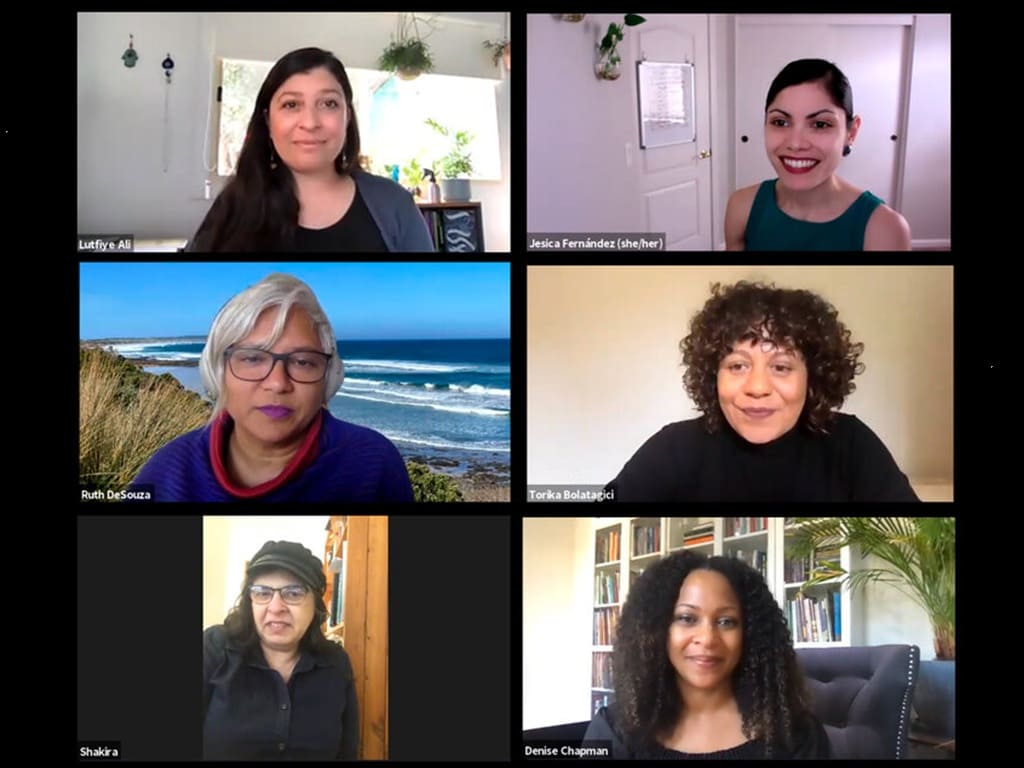The panellists: Screenshot by Torika Bolatagici.
This week has been a biggie with lots of zoom presentations, all of which were marvellous. The fabulous and thoughtful Lutfiye Ali gathered Shakira Hussein, Denise Chapman, Torika Bolatagici, Jesica S. Fernández and I together to talk solidarities in academia.
Abstract:
Expressions of embodied political creativity and radical being of and for solidarities of resistance have been long described by African American, Global South, decolonial, Indigenous and other women of colour scholar activists (e.g., Hill Collins, 2002; hooks, 2000; Grande, 2000; Lorde, 1984; Lugones, 1987; Moraga, 1983; Smith, 1999; Wynter, 2003;). Gloria Anzaldua (1990) writes:
A woman-of-color who writes poetry or paints or dances or makes movies knows there is no escape from race or gender when she is writing or painting. She can’t take of her color and sex and leave them at the door of her study or studio. Nor can she leave behind her history. Art is about identity, among other things, and her creativity is political.
As Women of Colour, this way of thinking about identity and knowledge inspires us to ask how we see our own positions in the academy. How do (neo)liberal institutions receive the voices and knowledges of racialized women? How do we co-create safe and enabling spaces for embodied knowledge production that is inherently political? What are ways in which we resist, disrupt, and transform intersecting vectors of inequality? Through these conversations, we will not only name heteropatriarchial and institutionalized racism through which the women of Colour and their labour are tokenised, appropriated, co-opted and silenced in academia, we will also identify the moments for forging and fostering solidarities of resistance, belonging and social change. We seek new spaces of knowledge production that are agentic, productive, disruptive while driving change for and with the communities through which we each engage our work. This discussion panel offers a way to think about ‘political creativity’ and generative possibilities for forging solidarities of resistance and belonging.
